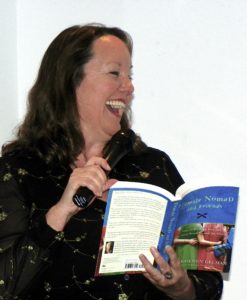Procrastination isn’t some deep character flaw, or an inability to organize your time. It’s a way to cope with challenging emotions triggered by writing – emotions such as self-doubt or insecurity.
“Procrastination is an emotion regulation problem, not a time management problem,” said Dr. Tim Pychyl, professor of psychology and member of the Procrastination Research Group at Carleton University in Ottawa.
So, let’s examine the emotions. When you think about writing, what thoughts come up? I’m not smart enough? I don’t write well enough? I’m not disciplined enough? Who wants to face those self-judgments? No wonder we procrastinate!
We compound the emotional sticky wicket by piling on top of those thoughts our judgments about procrastinating, creating a huge pile of negative associations with writing that won’t go away on their own. Every time we think about writing, we’ll trigger both the original fears and the low self-esteem and increased stress exacerbated by our thoughts about procrastination itself.
It helps to put procrastination in an evolutionary context: We are hard-wired to prioritize short-terms needs ahead of long-term ones. Thousands of years ago, “we needed to focus on providing for ourselves in the here and now,” said U.C.L.A. psychologist Dr. Hal Hershfield. Our brains didn’t perceive a “future self.”
Hershfield’s research has shown that when we put off tasks that evoke negative feelings, our brains perceive that not as “procrastinating,” but as shunting the tasks off to a stranger – our unknown “future self.”
When the brain feels stress or insecurity, it activates the amygdala whose purpose is to remove the threat. Even if we intellectually understand that putting off the task will cause harm in the future, the amygdala goes into over-drive to remove the present stressor.
“Our brains are always looking for relative rewards. If we have a habit loop around procrastination but we haven’t found a better reward, our brain is just going to keep [procrastinating] over and over until we give it something better to do,” said psychiatrist and neuroscientist Dr. Judson Brewer, Director of Research and Innovation at Brown University’s Mindfulness Center.
To change this procrastination pattern, we have to give our brains a better reward than avoidance does – a reward that alleviates the initial feelings generated by procrastination and puts our butts in the chair.
We start by forgiving ourselves for procrastinating in the past. Research shows that when we are able to let go of our judgments about past procrastinating, we are more likely to focus on the task at hand.
Next, we identify the underlying fears associated with writing and work those out.
Finally, we can disempower procrastination by recognizing it for what it is – an evolutionary biological response to stress – and accept it, but not be ruled by it. Politely put it in its place. Then get writing!
Do you procrastinate? How do you overcome it? Comment below.
Kelly Hayes-Raitt admits she sleeps around. Usually with animals.
More on that in a moment…
Her passion is helping writers get their books jumpstarted. Her coaching clients call her “inspiring,” and students in her workshops rave about her unique teaching techniques. Learn more about working one-on-one with Kelly at www.JumpStartMyBook.org.
Or join her in Cape Town, South Africa, February 1 – 10, 2020, for a magical writing retreat to jumpstart your book! www.JumpStartMybook.org/writers-retreat/
OK, the sleeping around thing? She’s a full-time housesitter and has been traveling the world for the past decade. She’s learned a thing or two about housesitting and shares her knowledge and experience in her popular book How to Become a Housesitter: Insider Tips from the HouseSit Diva available in soft cover or Kindle at Amazon or ebook on her web site www.HouseSitDiva.com.
Before nomading, Kelly reported live from Iraq during the early weeks of the U.S.-led invasion. Her journalism has won several literary awards and has been widely published in anthologies. The girl’s got stories.


